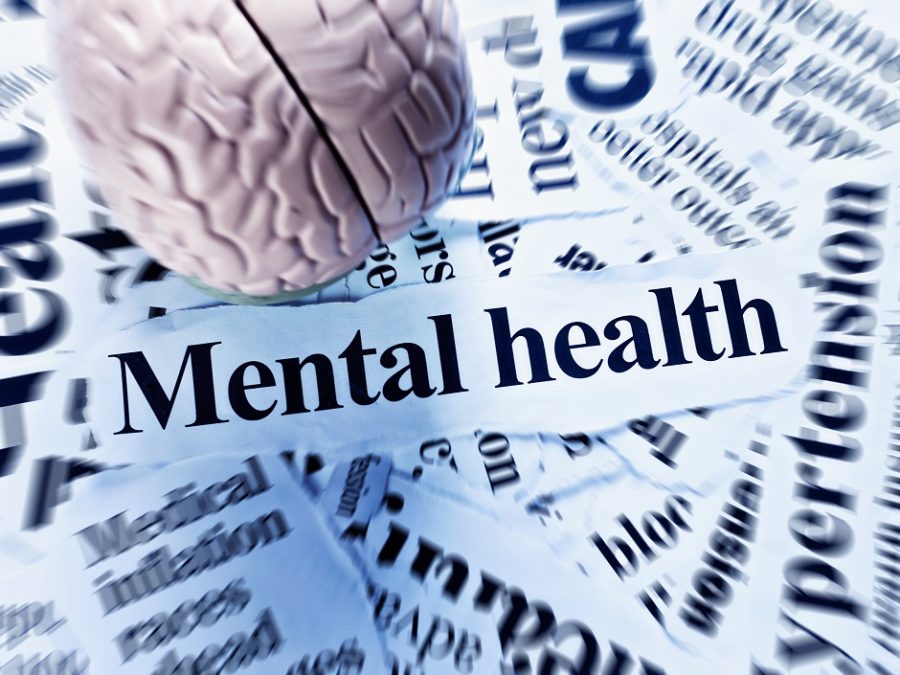Breaking The Stereotypes Associated with Mental Illness
Courtesy of British Psychological Society
There are a lot of stereotypes associated with mental illness, and this can make it hard for people to get the help they need and for people to understand their situation.
June 3, 2021
In honor of Mental Health Awareness Month, the world strives to help out those who feel out of place with themselves in society and often look for the support of others. However, due to the pandemic, this month of awareness has not seemed to be as recognized as it should be, causing it to gain less attention and thus reduce its purpose. This can be detrimental to those who seek this month as a time of hope and motivation, and that is why it is important to still recognize this month as much as possible for what it stands for. A good way to do this is to illustrate the many common stereotypes associated with many mental health disorders.
One mental health disorder that has many stereotypes associated with it is OCD. To many, OCD is known as an overly obsessive behavior to make everything neat and organized, and many make jokes about having OCD when they are being perfectionists. However, OCD is not limited to this, and typically consists of “unwanted and intrusive thoughts, images, or urges that trigger intensely distressing feelings” (International OCD Foundation). For example, a person with OCD may feel the urge to touch a door handle multiple times or a certain way because it feels “right” and if they don’t do this, then fears of something bad happening to them or a loved one comes to their mind. Though it is normal from time to time to have thoughts like these, people with OCD constantly have these intrusive thoughts to the point where their lives are interfered with and they can no longer function normally without OCD.
Anxiety is another mental health issue that also has a lot of stereotypes circulating around it. To many, people see anxiety as being stressed about a test or nervous to speak, and though those are all valid reasons to have anxiety, there is much more to it than that. People can have excessive amounts of anxiety that are triggered by certain events or occur for no reason at all, and this is when it is considered an anxiety disorder (healthline). As it progresses, “this type of anxiety may cause you to stop doing things you enjoy” and “in extreme cases, it may prevent you from entering an elevator, crossing the street, or even leaving your home” (healthline). This is much more dramatic than nerves from presenting, which is why it is important to not undermine or dismiss the issues associated with anxiety and anxiety disorders.
Depression, which has surged in the news over the years and especially during the pandemic, is another mental illness that has many stereotypes. Though the term and illness seem very self-explanatory, there is a lot more to depression than just feeling sad and lonely. It can bring about a loss of interest in activities, lack of motivation, and feeling numb and emotionless as you drag through each day feeling hopeless. Many see a lack of motivation as a person being lazy, but this is not always the case, and it should be examined closely if this is a frequent behavior. Additionally, feeling distressed and upset due to the loss of a loved one or having a bad day is not a sign of depression unless these conditions persist for weeks or months after this event has occurred. Differentiating between just being sad and being depressed is very important, as it encourages people to get the help they need.
With all of the stereotypes put on these mental health disorders, it really makes it difficult for people to feel comfortable with the issues they are facing. It creates barriers on people as the terms are often thrown about very lightly, making it a challenge for people to understand the true meaning engraved into these issues. Juliana Neemah (10) addresses this concern by saying “mental health disorders shouldn’t be stereotyped because you never know how someone really feels. You also sometimes can’t tell if someone has a mental health disorder, so you want to make sure that what you say isn’t offending anyone.” For example, saying that you have OCD just because you have neat handwriting can be really offensive to someone who truly struggles with it and can’t do basic tasks without feeling the need to do them a certain way as a result of the OCD. As a result, being willing to understand these mental health issues helps people become more empathetic and understanding of the world and each other by breaking the stereotypes that drag society apart.







































Fiona Salisbury • Jun 7, 2021 at 9:23 PM
Thanks for bringing more awareness to this topic! I really agree with the point that was brought up in your quote. Great article!
Sharon Sun • Jun 6, 2021 at 12:14 AM
Especially given the isolation of the pandemic, it helps so much that mental health is now becoming a bigger focus. I definitely hope that we can extend help to the isolated people who need it. Great article Kylie!
Paige Reddick • Jun 4, 2021 at 12:51 PM
This is a fantastic article, Kylie! It’s very important to have a full understanding of mental illnesses, and I appreciate your in-depth explanations.
Tiana Salisbury • Jun 3, 2021 at 8:20 AM
Thank you for writing this article! I also realize that there are many stereotypes about mental illnesses, and I think that people should understand mental illnesses before making assumptions.
danielle huizar • Jun 3, 2021 at 7:58 AM
I think it is extremely important to break stereotypes about mental illnesses! Stereotypes can be extremely harmful, and this article was great!